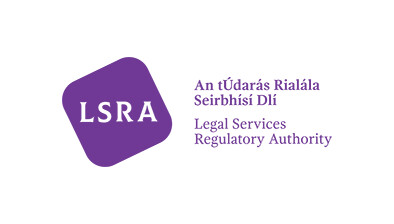One in five law firms ‘likely’ to become legal partnerships

One in five law firms say they are likely to become legal partnerships in the next five years, according to a survey published by the Legal Services Regulatory Authority (LSRA) to mark the introduction of the new business structure.
As of today, solicitors can form partnerships with barristers, and barristers can form partnerships with other barristers, in order to deliver legal services to consumers — a move which the government believes will bring down legal costs.
The LSRA commissioned Ipsos B&A to conduct a survey of legal practitioners, which found that six in 10 were in favour of the new business structure, with one in five indicating that their law firm would likely become a solicitor-barrister partnership in the next five years.
The survey found that legal practitioners who were in favour of legal partnerships held the view that the new business structure would lead to efficiencies and cost savings by sharing the resources of solicitors and barristers. Specialised services and greater levels of efficiency by combining skills are the top two selected from a list of benefits of becoming a solicitor-barrister legal partnership.
Legal practitioners surveyed saw benefits of legal partnerships accruing in many areas of law, with ‘litigation and dispute resolution’ and ‘environmental planning’ being the areas that solicitors believe will benefit the most from their introduction.
Dr Brian Doherty, CEO of the LSRA, said: “Legal partnerships are an innovation in the Irish legal services market which will help modernise the provision of legal services and yield benefits for both legal practitioners and clients alike.
“Barristers and solicitors practising in partnerships will benefit from the efficiencies that flow from a group practice, such as being able to share backroom costs and client work, as well as risks. Consumers in turn will be offered expanded choices when availing of legal services.
“Furthermore, the ability for two or more barristers to operate in partnerships will promote wider employment opportunities and career development in that profession, in addition to the existing models of either self-employed sole traders or in employment.
“We know from our recent research on barriers facing early career solicitors and barristers that there is strong appetite, in particularly among junior barristers, for alternative business models in which to practice.”
He added: “Over the past number of years the LSRA has undertaken extensive preparatory work to ensure the best possible regulatory framework is in place for this new business model.
“We would like to thank our stakeholders, including the Law Society of Ireland, the Bar of Ireland and the Honorable Society of King’s Inns as well as insurance companies and State bodies for their input and insights as we worked to establish the regulatory framework and bring to life legal partnerships in the Irish legal services sector.”
Justice minister Helen McEntee said: “The commencement of the new legal partnerships regulations is a welcome development in our ongoing efforts to modernise and diversify the offerings of the Irish legal services sector.
“Legal partnerships allow for the further growth of our legal services sector and an increase the range of professional opportunities for legal practitioners.
“Importantly, this new business model also offers the potential for a more flexible and cost-efficient service for clients, reducing the stress for those who need to seek legal advice, expertise or representation and is another step towards our goal of making access to justice, cheaper, faster and more efficient.”








